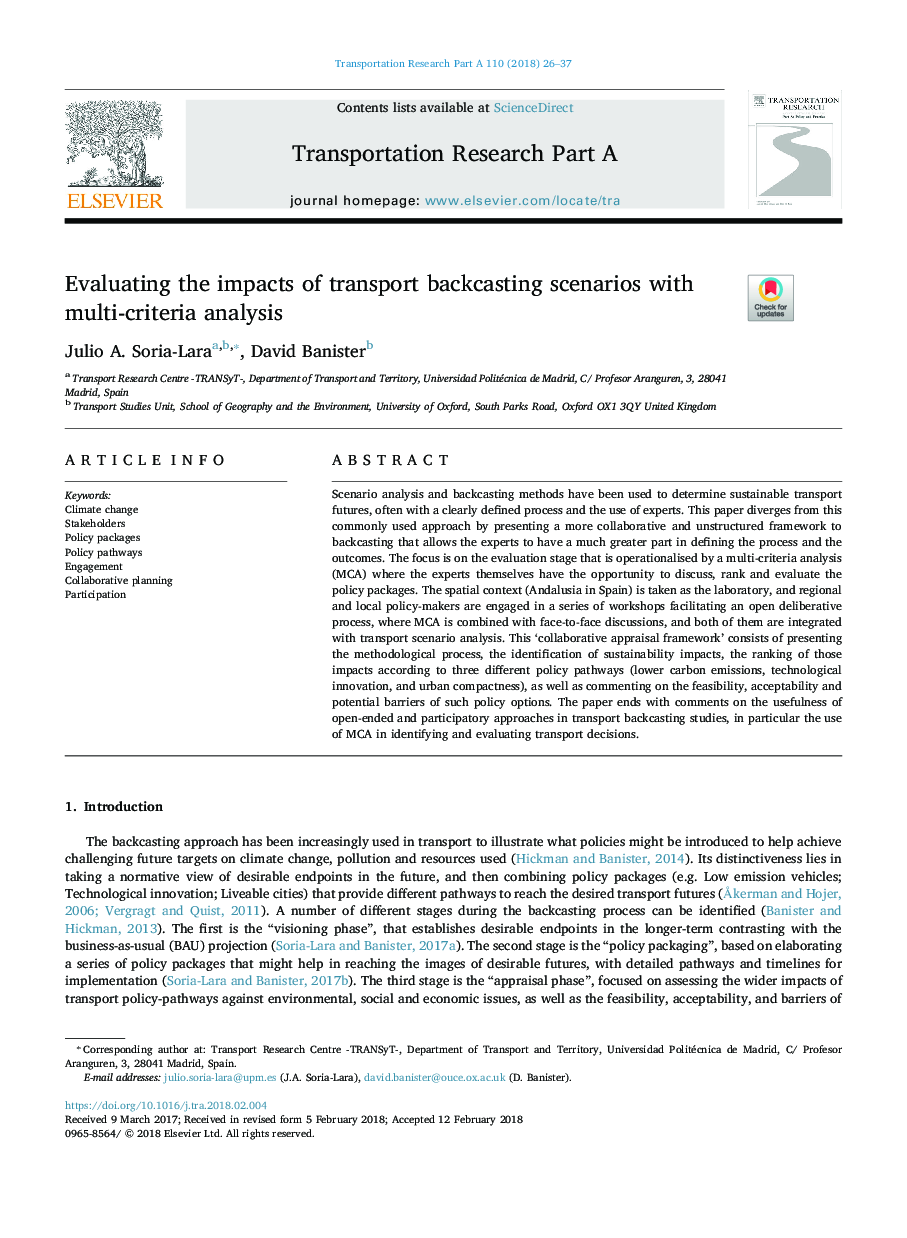| Article ID | Journal | Published Year | Pages | File Type |
|---|---|---|---|---|
| 6780392 | Transportation Research Part A: Policy and Practice | 2018 | 12 Pages |
Abstract
Scenario analysis and backcasting methods have been used to determine sustainable transport futures, often with a clearly defined process and the use of experts. This paper diverges from this commonly used approach by presenting a more collaborative and unstructured framework to backcasting that allows the experts to have a much greater part in defining the process and the outcomes. The focus is on the evaluation stage that is operationalised by a multi-criteria analysis (MCA) where the experts themselves have the opportunity to discuss, rank and evaluate the policy packages. The spatial context (Andalusia in Spain) is taken as the laboratory, and regional and local policy-makers are engaged in a series of workshops facilitating an open deliberative process, where MCA is combined with face-to-face discussions, and both of them are integrated with transport scenario analysis. This 'collaborative appraisal framework' consists of presenting the methodological process, the identification of sustainability impacts, the ranking of those impacts according to three different policy pathways (lower carbon emissions, technological innovation, and urban compactness), as well as commenting on the feasibility, acceptability and potential barriers of such policy options. The paper ends with comments on the usefulness of open-ended and participatory approaches in transport backcasting studies, in particular the use of MCA in identifying and evaluating transport decisions.
Related Topics
Physical Sciences and Engineering
Engineering
Civil and Structural Engineering
Authors
Julio A. Soria-Lara, David Banister,
